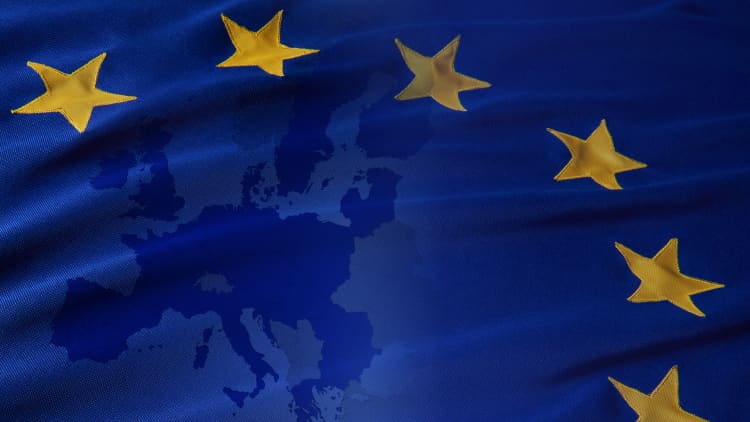The European Union on Thursday firmly objected to President Donald Trump's decision to impose a travel ban on most EU nations, saying any decision should have come after consultations with the bloc.
Trump announced the travel restrictions Wednesday on 26 countries in Europe. The travel ban is due to begin Friday evening and last for at least 30 days. The White House's decision came hours after the World Health Organization labeled the coronavirus as a pandemic. There are more than 127,000 confirmed cases around the globe, according to data from Johns Hopkins University.
"The Corona virus is a global crisis, not limited to any continent and it requires cooperation rather than unilateral action," European Council and European Commission Presidents Charles Michel and Ursula von der Leyen said in a statement Thursday morning.

"The European Union disapproves of the fact that the U.S. decision to impose a travel ban was taken unilaterally and without consultation," the two top ranking EU officials said, adding that "the European Union is taking strong action to limit the spread of the virus."
European leaders had a conference call Tuesday evening where they discussed how to tackle the global health crisis. They agreed to prevent medical equipment shortages, promote the development of a vaccine, as well as create a fund of 25 billion euros ($28 billion) to contain the economic impact of the outbreak.
Trump's travel ban does not apply to legal permanent residents of the U.S., according to the Department of Homeland Security, and in most cases, it does not apply to immediate family members of U.S. citizens.
The U.S. is banning entry to those traveling from the 26 European countries that form the Schengen Area, where there are no passport checks between internal borders. These nations are: Austria, Belgium, Czech Republic, Denmark, Estonia, Finland, France, Germany, Greece, Hungary, Iceland, Italy, Latvia, Liechtenstein, Lithuania, Luxembourg, Malta, Netherlands, Norway, Poland, Portugal, Slovakia, Slovenia, Spain, Sweden and Switzerland.
Other countries in Europe not part of the Schengen Area are excluded from the ban. These are the U.K., the Republic of Ireland, Croatia, Cyprus, Romania and Bulgaria.



